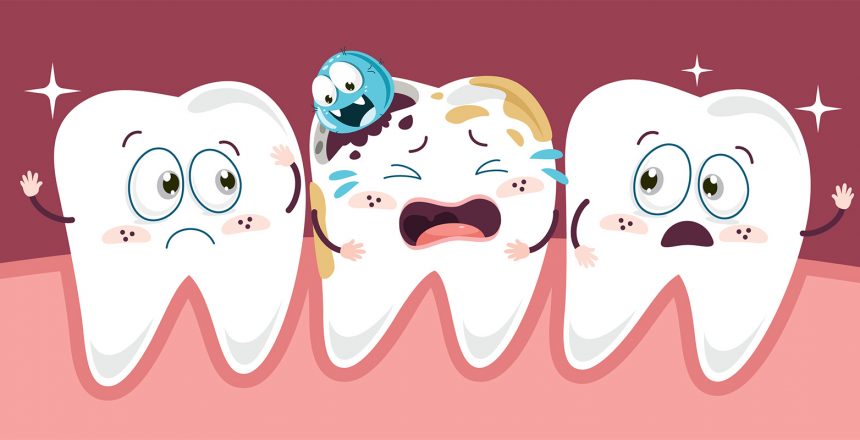You brush your teeth twice daily. You eat healthy. You drink water. You hardly eat sweets. So, why are you getting cavities? Sugar is often seen as the leading cause of tooth decay. But the truth is, even if you never eat sugar, you can still get cavities.
The science behind cavities:
To really understand how a cavity forms, it’s important to know what dental plaque is. Plaque is a sticky film of bacteria (biofilm) that forms on your teeth daily. It’s what makes your teeth look and feel fuzzy when they are not brushed, such as when you wake up in the morning. After eating, the bacteria in plaque breaks down sugar to produce acid that attacks your enamel for at least 20 minutes. This acid demineralizes and weakens enamel resulting in tooth decay. When plaque is not removed regularly, it creates inflammation, gingivitis and hardens into tartar (calculus). Plaque and tartar also contribute to periodontal (gum) disease, which can cause bone and tooth loss over time.
Risk factors for tooth decay:
There are some obvious risk factors for tooth decay and others which may surprise you.
- Diet – A diet high in sugary and acidic food/drinks will contribute to tooth decay since bacteria break down sugar into acid. Carbohydrates are essentially sugars and they are also found in healthy foods such as whole grains, dairy, fruits, and even vegetables.
- Frequent snacking – Acid usually stays in your mouth for about 20 minutes. Constant snacking or sipping drinks keeps your mouth in a continuously acidic environment. If you really want that soda, finish it in one sitting rather than sipping it throughout the day or consider using a straw to avoid contact with your teeth.
- Dry mouth – Saliva is beneficial in washing away bacteria and neutralizing acids. Saliva is significantly reduced with tobacco use, some medical conditions, and certain medications such as inhalers, cancer drugs, antidepressants, and even high blood pressure medications.
- Poor dental hygiene – Not brushing or flossing at least twice daily causes plaque to be left on teeth.
- Inadequate fluoride – Fluoride is a mineral that is proven to strengthen enamel and fight off decay. Without enough fluoride, teeth are more vulnerable to acid attack.
- Worn dental restorations – Fillings and crowns are not meant to last a lifetime. They will wear down over time and create places for plaque and bacteria to hide.
- Misaligned teeth – Poorly positioned teeth can be harder to clean around, resulting in plaque being left behind.
Tips for preventing tooth decay:
The real key to prevent tooth decay on the most basic level is to minimize oral bacteria and acid development.
- Be aware of your diet and frequency of eating.
- Right after eating, drink plenty of water to help rinse away bacteria or chew sugarless gum containing xylitol. Xylitol has been proven to regulate the acidity in the mouth, inhibit bacterial growth, and stimulating saliva production to clear away food debris.
- Wait 30 minutes after eating acidic or sugary foods to brush your teeth to avoid rubbing sugar and acid into your teeth. Rinse with water instead.
- Maintain good oral hygiene and don’t forget to floss or use a Waterpik daily to reach the spaces between teeth.
- Use fluoridated toothpaste and ask your dentist about fluoride varnish applications.
- Get professional dental cleanings at least twice a year; more frequently if you are prone to gum disease or decay.
Now, that you have learned it is not necessarily sugar that causes cavities and tips to prevent tooth decay, go enjoy yourself a little treat.

